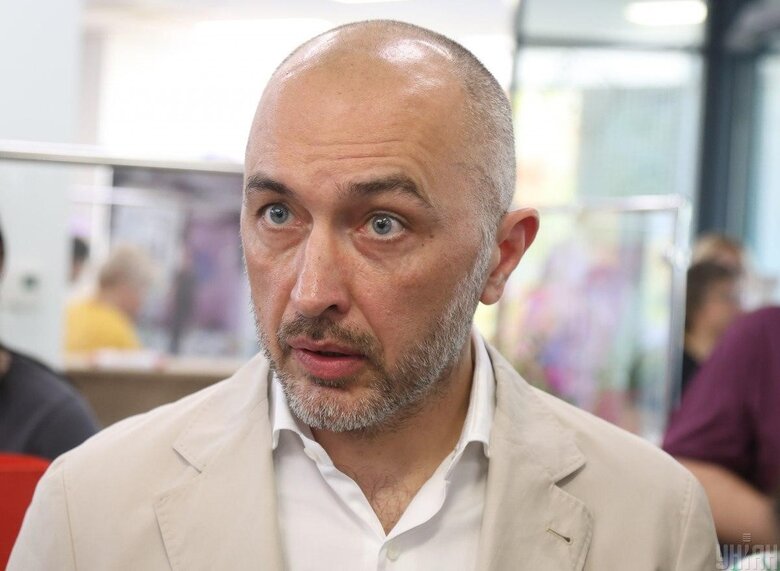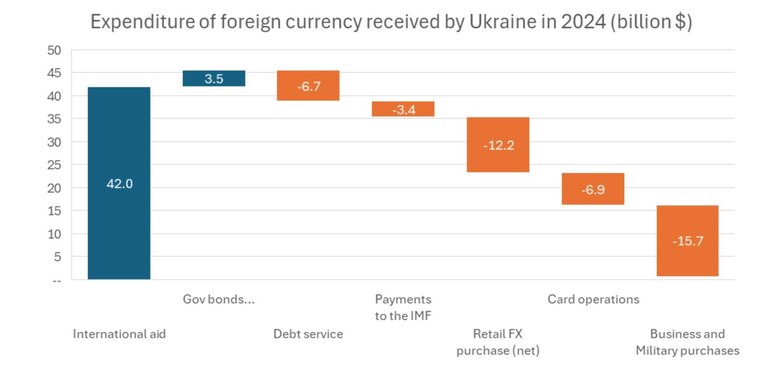NBU’s artificial maintenance of hryvnia exchange rate suppresses exports and incentivizes population to purchase foreign currency - investigation
The National Bank of Ukraine, led by Andrii Pyshnyi, has been overly focused on maintaining the hryvnia exchange rate, enabling wealthy Ukrainians to purchase more dollars and imported luxury goods.
This was reported by Unian, Censor.NET informs.
This is stated in the DS investigation titled 'BMWs and iPhones instead of investments: How the NBU encourages the "consumption" of international aid'."

According to the authors, more than half of the international aid — $19.1 billion — has been allocated to the needs of the population. Specifically, individuals purchased $12.2 billion in cash and non-cash foreign currency, mainly from banks (it is worth noting that banks acquire this currency in exchange for hryvnias from the NBU’s reserves). Almost $7 billion was spent on payments with hryvnia cards abroad and cash withdrawals from foreign ATMs, which is support for Ukrainians who are outside our country.
The report highlights that a significant portion of foreign currency expenditure has been absorbed by unproductive imports, driven by an artificially undervalued exchange rate. For example, in 2024, 69.6 thousand new passenger cars were registered in Ukraine, marking a 14% increase compared to 2023.
"In this economic context, such spending priorities raise concerns, as a substantial part of these vehicle purchases is evidently unrelated to the needs of the frontline or critical infrastructure. The international financial assistance sustaining Ukraine at present cannot continue indefinitely. It is likely that in the coming years, the volume of financial aid will significantly decline as Western partners begin to curtail expenditures due to their own economic challenges. This poses a serious risk for Ukraine, as without external support, the balance of payments will become even more fragile. In this context, the NBU’s policy fails to account for long-term strategic considerations. The current artificial stabilization of the hryvnia exchange rate allows individuals to purchase foreign currency at a favorable rate, but it simultaneously stifles exports, while businesses encounter limitations on foreign exchange operations," the authors stress.
According to the NBU, in 2024, our country received substantial international assistance in the form of grants and loans, totaling $42 billion. An additional $3.5 billion was raised in the domestic market through DGLBs (domestic government loan bonds).

